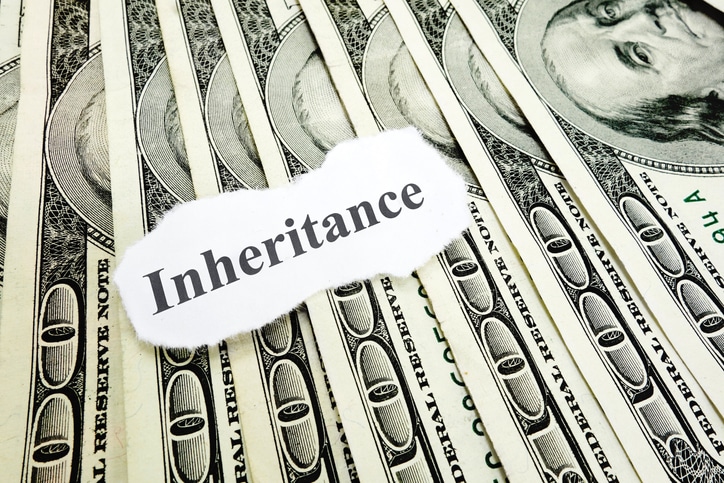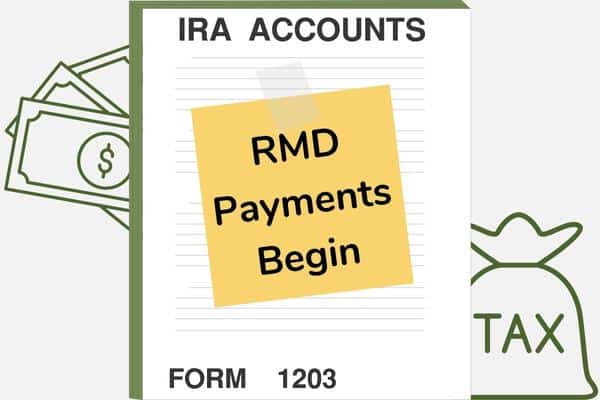When someone passes their assets on to you after they die, the process of receiving that inheritance must be managed carefully with regard to estate and/or trust administration and understanding tax implications. Some inherited monies might be received in fairly short order, particularly if they pass by virtue of a named beneficiary designation. However, the timeframe and process for other assets can be lengthy and complex. Here we discuss the procedural steps and tax consequences of receiving an inheritance.
The Legal Process of Inheritance
When someone dies, an estate attorney typically becomes involved to ensure the deceased’s wishes are carried out properly. Providing a will exists, it must be filed in the county’s probate court for the judge to approve assignment of responsibilities to those named in the will. This begins with recognizing the personal representative (also called executor) who oversees gathering the deceased’s assets and following the directions in the will to distribute them after paying off any debts or taxes.
If a trust was in place, it does not go through probate court. The trustee, the person in charge of managing the trust and its assets, can seamlessly continue to manage the trust. Alternatively, if the decedent was managing his or her own trust, the successor trustee can be immediately appointed as next in line once a death certificate is available, without any court proceedings. This can make a trust a more efficient and faster way to distribute assets to benefactors.
For decedents who do not have a will, a personal representative must be appointed by the probate court. This process can go on for weeks or months. Furthermore, conflicts can sometimes surface, such as family members arguing over who is in charge. The ultimate named personal representative must receive the court’s permission for distributing assets, which are set by state law. This shows how dangerous it is to not have a will as family members, friends, and anyone else closely involved with the deceased could have disagreements. Therefore, we encourage estate planning for all ages, regardless of assets.
Inheritance Tax Considerations by Account Type
How the deceased’s money is passed on depends on how an account is classified, and if any beneficiaries were named on the account. Additionally, accounts used for everyday finances like a bank account or investment account have different tax treatments than a tax-deferred account such as an Individual Retirement Account (IRA).
Accounts Titled Jointly or with Beneficiary Designations
Many inherited assets encounter delays in being distributed due to administrative, tax and legal requirements. Fortunately, there are two exceptions:
Joint Accounts: If you are the joint account owner, you have immediate rights on an account. Joint account owners retain access to assets and can transfer assets solely into their own name assuming the registration includes “rights of survivorship benefits.” A death certificate must be provided, and some additional paperwork is often required. However, the absence of any court procedures allows joint assets to transfer in a timely manner.
Beneficiary Designations: Similarly, accounts that hold a beneficiary designation can pass to the named beneficiary without complicated procedures and in a short timeframe. A death certificate must be provided along with supplemental paperwork. Such designations are common on retirement accounts and insurance policies. They can also be assigned to non-retirement accounts such as bank and brokerage accounts.
Retirement Accounts
Retirement accounts, such as IRAs and 401(k)s, are transferred to whomever is named as the beneficiary of the account. Accounts can be divided among multiple beneficiaries. For example, an uncle may leave 50% to each of his two nephews. Married account holders usually leave 100% to his or her spouse. These assets are not taxed until withdrawn by the beneficiary, who then must pay tax on the total amount withdrawn as ordinary income according to their tax bracket. Too much withdrawn could put the inheritor in a higher tax bracket. For this reason, working with a tax professional is highly recommended.
The Internal Revenue Service (IRS) allows surviving spouses to receive retirement accounts in a tax-free transfer, and then taxes it as the spouse withdraws over his or her lifetime. A spouse has options for the manner in which IRA assets can be received. The spouse can elect a spousal rollover into his or her own IRA account, calculating future required minimum distributions (RMDs) based upon the surviving spouse’s age. Alternatively, if a surviving spouse is under age 59 ½, a spousal inherited IRA could afford additional flexibility as this account structure allows penalty-free distributions before age 59 ½.
For a non-spouse beneficiary, rules now require assets in an inherited IRA to be fully withdrawn within 10 years of the previous owner’s death. Therefore, the nephews above would need to withdraw and pay tax on the full amount within 10 years, at their own tax bracket. They can do this all at once or as they desire each year over the 10-year period unless the deceased was 72 or over and taking RMDs in which case RMDs would need to continue with total withdrawal by the 10th year. An exception to the 10-year rule is if the non-spouse beneficiary is not more than 10 years younger that the deceased, is disabled, or is a child of the deceased and under age 21. The deceased’s minor child must start the 10-year period when they reach the age of majority.
Please be aware that if a charity is a named beneficiary along with individual beneficiaries, or if the retirement assets are distributed to an accumulation trust, the distribution timeframe could be truncated to a five-year timeframe.
Learn more in our article “Understanding Required Minimum Distributions (RMDs).”
Non-retirement Accounts
For money that is not in a retirement account, like a brokerage account, no tax is due by those who inherit the funds unless the state they reside in has an inheritance tax and they are not immediate family [1]. Maryland is one of those states that has this tax. Life insurance is another form of inheritance that is not taxed to the beneficiary.
Non-retirement assets owned outright by the decedent upon death receive a step-up in basis. A step-up in basis resets the cost basis of assets to the value as of the date of death. As an example, if the decedent bought shares of stock for $1,000 and the stock was worth $10,000 before death, the owner would have incurred a $9,000 capital gain if they sold the asset. Such gains are taxed at a federal capital gains tax rate of 15% or 20%, depending on the recipient’s tax bracket. However, the cost basis resets to $10,000 (the value as of date of death) when an individual dies. This allows beneficiaries to easily sell assets if desired.
Important Note: Financial institutions such as brokerage firms typically have to be instructed to apply a step-up in basis versus it being an automatic process. If you receive inherited non-retirement assets, review the cost basis to ensure the step-up was applied.
Inheritors may have an option to keep non-retirement account investments versus selling them. If assets are retained, the inheritor assumes all future tax impacts such as taxable income and taxable gains (if any) upon sale.
The bottom line is that while no tax is paid when receiving a non-retirement account asset, tax on income, appreciation, and certain withdrawals from the date of death forward is the responsibility of the recipient.
An exception to the above is if assets are received from a trust other than a grantor trust created by the decedent. For example, a trust for a child created by a grandparent that is ultimately distributed to grandchildren after the child dies. Such assets frequently do not receive a step-up in basis, meaning that all embedded capital gain exposure in the trust transfers to the beneficiary.
We highly recommend consulting a professional who can provide advice on the tax consequences of an inheritance that is not paid out in cash or has a substantial income distribution, and who can keep you updated on changes in tax law.
Protecting Your Inherited Assets
Finally, individuals are encouraged to keep inherited assets in separate accounts titled in only their name. If the inheritance is deposited in an account co-owned by a spouse, the spouse not receiving the inheritance suddenly may have rights to use that money, and it could be included as marital assets in a divorce.
SageVest Wealth Management works with many individuals who have received inherited assets. We help guide clients through all steps of the process including tax impact considerations, titling decisions and the best use of inherited funds. Our goal is that you maximize the benefit of your inheritance, both after taxes and in relation to your life goals. We welcome you to contact us to discuss your inheritance or any of your financial planning needs.
References




